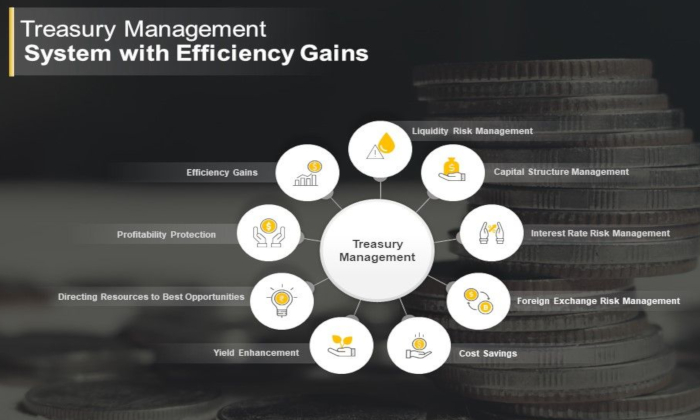Banking Operations
Banking Operations are the legal business or financial transactions executed daily by a bank.The primary role of every banking operations department is to ensure the evolving banking processes and the transactions are executed correctly while minimising risk and maximising the quality of service.
This faculty exposes participants to the challenges and opportunities of the branch banking business within the dynamics of the changing environment while ensuring the presence of legal and regulatory compliance with various global and local laws.
The Banking Operations faculty is headed by Nana Kwabena Appiah- Gyimah.


Credit Risk Management
Credit Risk Management involves the process and systems used by banks and financial institutions to mitigate the risk of default that may arise from a borrower failing to make required payments.The role of a credit risk department is a viral one because staff from the unit are responsible for identifying risk affecting the businesses of their client and provide mitigating solutions.Through careful management,they can prevent and minimise the losses from their institutions.
This faculty offers several training programmes ranging from foundation to expert levels that can help participants understand the critical components of the credit risk management process.
The Credit Risk Faculty is headed by Raymond Akakpo.
Information & Communication Technology
Information Communication Technology is the transmission of data from various audio-visual,telephone and computer networks to facilitate the manipulation and storage of requisite information.
Information Communication Technology is fast becoming the heart of the Ghanaian banking sector because it has improved the efficiency and the effectiveness in transactional processes,customer services,managerial decisions and general workgroup collaborations.In today’s world, the use of technology keeps increasing as such there is the need for professionals to be abreast with technology and communication.This faculty offers several training programmes that will allow clients/customers to gain the needed soft skills in the microsoft suite,project management,ISO etc. while responding to real-world scenarios.
Kwasi Debrah is the head of Information and Communication Technology.


The modules for the three leadership programmes are: –
• Module I – Leadership Essentials for personal proficiency;
• Module II- Developing and maintaining your team;
• Module III – Accountable leadership for higher productivity.
Each of the three modules above will focus on four key skills i.e. communication, influence, agility, and self-awareness. The rationale to drift towards leadership behaviours is to help close the challenging gaps in managing conflicts, delegating expediently for employee development, accomplishing tasks, and building relationships. Again, at the higher level, collaborating across the organisation to drive tangible results that are aligned with strategic objectives can be a turmoil for senior managers.
Our leadership programs primarily are to:
a. provide solutions purposefully for overcoming skills gaps.
Management and Client Development
The National Banking College will from 2020 focus its Human Resource programs on leadership and management development with primary objective on developing leadership competencies for the different leadership levels in organisations.
Our programs, categorised into foundation, intermediate and intermediate-advanced levels is targeted towards different roles. Example of the roles is: individuals without direct reports, persons who lead projects, talents in the leadership pipeline, professionals and supervisors aspiring into managerial roles, mid-level line Managers, newly appointed managers, business development managers, mid-senior level managers and department heads and Manager of Managers.
b. help drive performance and create customer-focused workplaces to optimise success.
c. enhance strategic capabilities in the areas of developing the staff,implementing change,and creating successful engagements.
We partner with industry practitioners to offer a variety of assessments to support team leaders to better understand themselves and their team leaders.
Our training reports to be provided to the clientele will include management competency profile, emotional intelligence, development action planner and leadership reports. All our programmes have been designed to span over a duration of 4-5 days and will involve pre-training assignments, facilitation and presentations,10-15 minutes video shows and group discussions.
Risk & Regulations Management
Risk management encompasses identifying, assessing and controlling threats to an organisation’s capital and earnings. Financial service professionals are required to have in-depth knowledge in the understanding of risks as well as the framework of retail activities as defined by the regulator. It also helps the participant(s). understand how Basel III impacts operational risk of banks at the branch level.
These faculty offer several training programmes that focus on real and emerging risk emanating from both staff and customers,thereby analysing the core retail operation and risk that are faced in the day-to-day operations.
Risk and Regulation management is headed by Dr.Dr. Francis Mensah Sasraku.


Treasury Management
It is the goal of most treasury management departments to optimise their company’s liquidity, make sound financial investments for the future with any excess cash, and reduce or enter into hedges against its financial risks. Treasury management involves proper management of a company’s holdings so as to mitigate any financial risk.
Treasury management plays a critical role by ensuring that a company has the cash at all times to run its business. Treasury management helps develop a practitioner’s confidence and knowledge of markets, banks, investors, borrowers and issuers, and an understanding of the Treasury Function.
The Treasury management faculty is headed by Naa Adjeley Barnor


